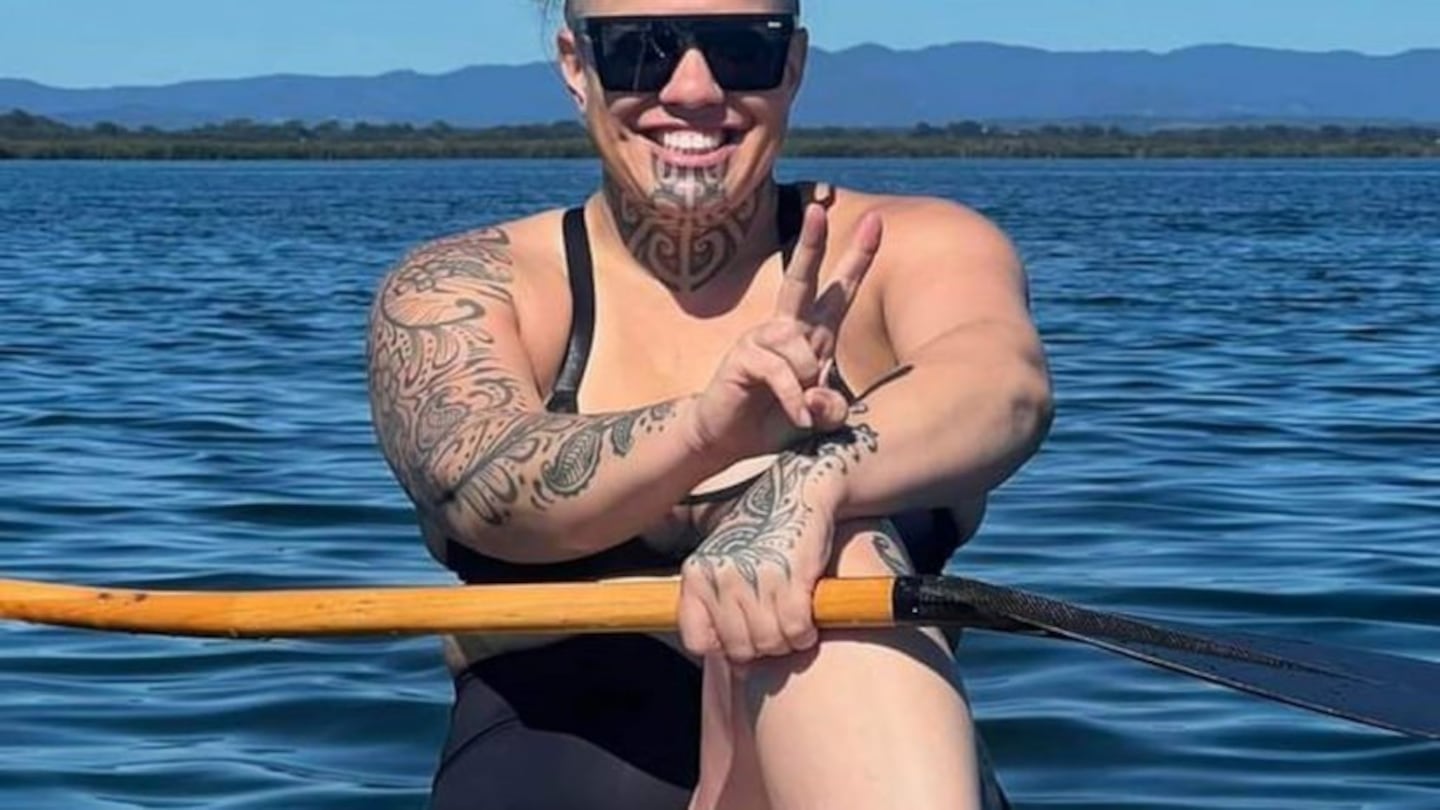Juanita McNamara was denied entry into a Brisbane bar because of her moko kauae. Photo / Supplied
A Māori women living in Australia has been left embarrassed and shocked after being denied entry to a bar because of her chin moko kauae.
Juanita McNamara, of Ngāti Kahungunu, told the Herald she was enjoying a night out with friends in Brisbane’s Fortitude Valley on Saturday when three security guards at Finn McCool’s would not let her through the door.
“As I went to give my ID, the female security guard said to me you’re not allowed in because of your face and neck tattoos,” said McNamara.
“I explained to her the moko kauae [is a] taonga, it’s a treasure.”
McNamara’s attempts to educate the bar staff on the cultural meaning of her tattoo went unheard and she was told repeatedly she was not going to be allowed in.
She was even more shocked when a staff member, who claimed to be Māori, said that her tattoo was not a moko kauae.
“I felt really embarrassed, actually. I was quite shocked, quite upset and then I ultimately felt a feeling of injustice, particularly when the woman proclaimed to be a Māori,” said McNamara.
After sharing her disappointment at the bar on social media, McNamara said Scott Hempel, the director of Hallmark Hospitality, the group which owns the bar, texted her an apology.
He had also told her that they would be changing their tattoo policy - a blanket rule where no face, neck or hand tattoos were permitted, by June.
However, McNamara said this was not good enough.
“I’m not satisfied [and] that’s why I am taking them to the Australian Human Rights Commission,” she said.
McNamara, who is a law student, is also looking to work with a discrimination lawyer.
She would like to see businesses educated on cultural tattoos, an end to discrimination of all tattoos and to see all venues’ policies in line with the Queensland Anti-Discrimination Act 1991.
Hallmark Hospitality, which owns 14 venues across Australia, came under fire last June in a similar situation.
Moale James, who is of Papua New Guinean heritage, was not let into Hey Chica!, a popular bar also in the Fortitude Valley, because of her face reva reva, news.com.au reported at the time.
James said she explained to the guard that her tattoos were “cultural”, but he still refused to let her in.
McNamara was disappointed that nothing had changed among the hospitality group since this discrimination shown to James nearly a year ago.
“It doesn’t take that long to send an email out to the venue, it doesn’t take a long time to put this into process. I think he is dragging his feet,” she said.
A moko kauae often represents a woman’s whānau and leadership within her community, recognising her whakapapa, status, and abilities.
The Human Rights Commission said a person of Māori descent may not be denied employment, entry to premises, or declined service because they wore tā moko visibly.
In a statement, Finn McCools said it was in the process of changing its entry policy.
“Finn McCool’s Fortitude Valley is reaching out to Juanita McNamara in order to apologise for her experience at the venue on Saturday night,’ the venue said.
“Hallmark Hospitality is currently in the process of updating the group’s venue entry policy to reflect and endorse the business’ commitment to providing a safe and welcoming environment for all patrons.”
Issues of racial profiling and tattoo discrimination have been highlighted in recent years in New Zealand with the help of social media.
Last year a mother was told to cover up her moko kauae tattoo or leave a playground in Havelock North because she was “scaring the children”.
Hawke’s Bay community leader Heather Te Au-Skipworth, who proudly wears a moko kauae, said she was not surprised by the incident.
“I think the message that needs to be put out in the public is ‘don’t fear the moko, don’t fear Māori, and don’t fear what we have to offer,” Te Au-Skipworth said.
Regional councillor Stacey Te Pohue Rose said he was racially abused on the street five minutes after receiving his tā moko facial tattoo.
Up until September 2019, Air New Zealand had a policy banning tā moko on staff despite displaying koru designs on its uniforms and planes.


